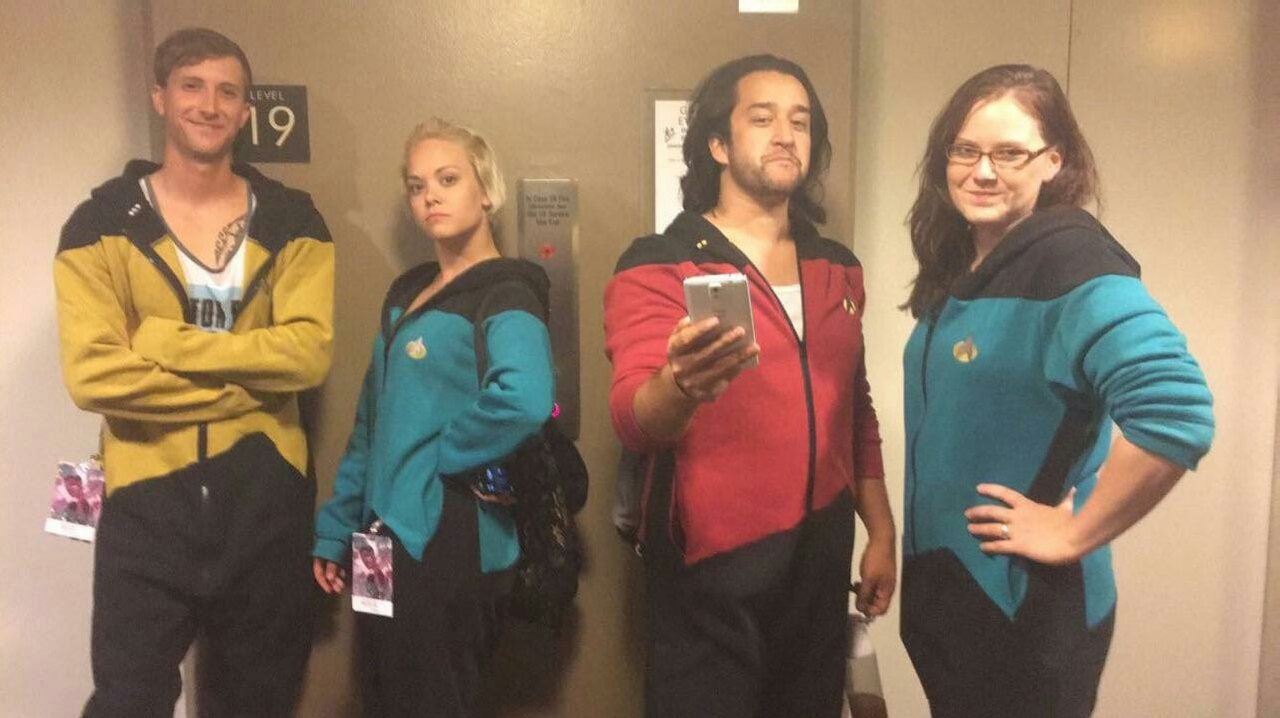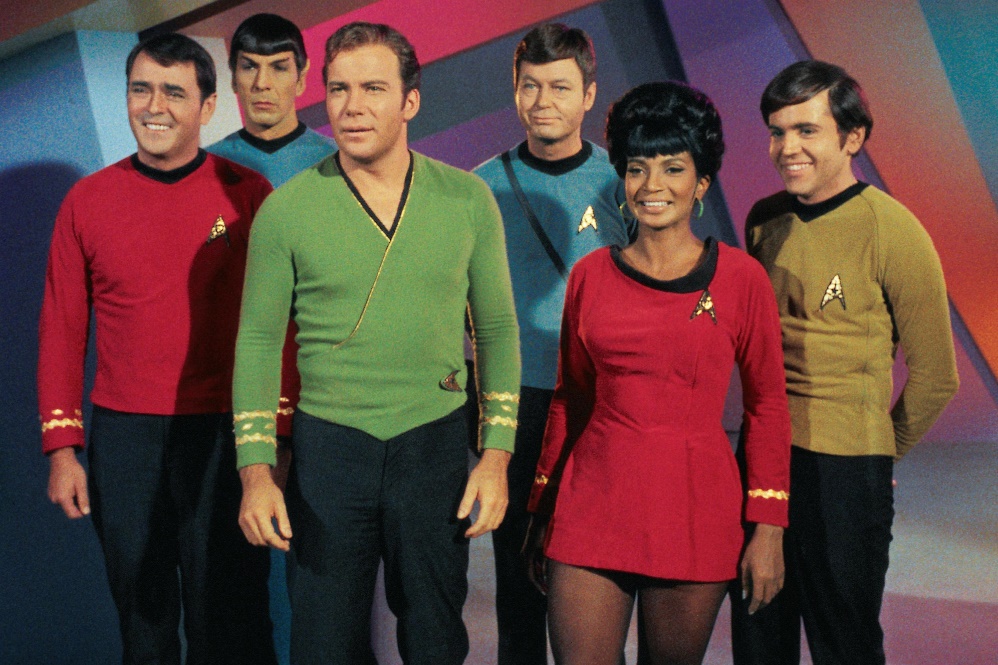Star Trek: 50 Years Later
Space: the final frontier. These are the voyages of the starship Enterprise. Its five-year mission: to explore strange new worlds, to seek out new life and new civilizations, to boldly go where no man has gone before.
A five-year mission. The Original Series only lasted four, but here we are — fifty years later — and still carrying out its original mission. Gene Roddenberry’s vision of an advanced society – economically, socially, technologically – was inspiring and progressive. In a decade when minorities didn’t see much screen time, Roddenberry pushed boundaries, casting a black female, an Asian male, and a Russian male (during the Cold War!) in lead roles. Star Trek’s plots included interracial relationships – taboo in much of America at the time. Where a mainstream TV show couldn’t get away with it, a science fiction show could, simply because it was set in a theoretical, futuristic time and place. He hoped his show would inspire discussion, intellectual debate, and ultimately, change. Most would agree that it did!
That vision was the anchor for every Star Trek show and film that followed, paving the way for even more philosophical discussion, but always – or at least usually — set far away in space. There are plenty of mindless TV shows for those days when you want just lie on the couch and not think. Those have their merit. But Star Trek is not one of those types of shows. While it certainly has its moments of action and violence, most of the conflict is interpersonal, ethical, and cultural, and often there is no clear solution. Instead, as a viewer, you’re forced to think and challenge your preconceptions, and characters must make difficult decisions and live with them. Conflict produces personal growth.
The Original Series (TOS), The Animated Series, The Next Generation (TNG), Deep Space Nine (DS9), Voyager, Enterprise and Discovery. Seven series and thirteen feature films, countless novels and comics, board games, video games, fan conventions – it’s safe to say that Star Trek is one of the most influential franchises around.
And I am one of the biggest fans! I saw most of the various series growing up, but re-watched them all again as an adult, and while I don’t like to brag, I’m really hard to beat at Star Trek trivia!

(Any fellow fans out there interested in my favorites? Spock is my favorite character, but I have a bit of a crush on Worf. Picard is the best diplomat, Quark is the best bartender, Bones is the best doctor, Sisko is the best decision maker, and Sulu is one heck of a helmsman. Garak was one of the best written characters in the whole show. And of course there’s Q who always shows up to throw a wrench in whatever adventures are underway. To be honest, it’d be easier to tell you my least favorite characters than to pick my favorites.)
And then there’s Deanna. I remember watching TNG with my parents as a kid, running around in my purple stirrup pants pretending to be Deanna Troi, the Enterprise’s half-human, half-Betazoid counselor in TNG. She was my first female role model, and inspired me to love science and want to be an astronaut. (Spoiler, I’m not an astronaut.) For that reason alone, I owe a lot to Star Trek.
There’s not a really clear content marketing tie-in for this blog, per se, and I don’t want to force one. But I think there is something to be said about the power of an idea. A vision. A better future. One man thought things could be different, and despite a cool reception to the idea of the show at first, he developed his idea, wrote it down, and created a story in which he “made it so.”
Just look around – his vision, his words – they have become a reality in many ways! Not to mention Star Trek communicators are old technology compared to our smart phones! Take some time today to appreciate how far we’ve come. Do something kind for someone else. Make Roddenberry’s vision yours, and of course, live long and prosper.

Laura Lee — Account Manager & SEO Specialist



